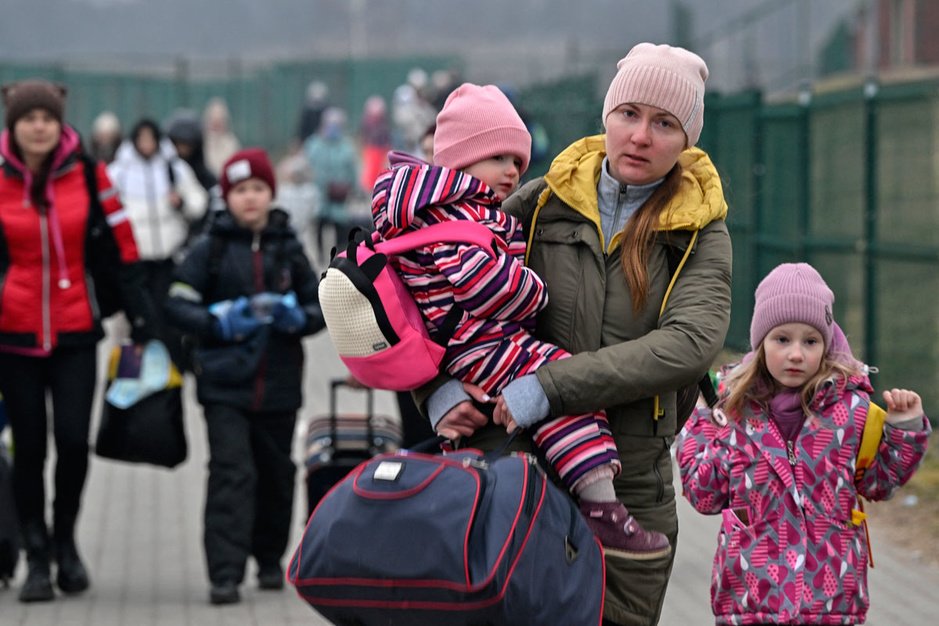Flanders will make a decision regarding the number of emergency villages for Ukraine refugees on Monday, and authorities are already making preparations including sewers, internet and Covid-19 vaccinations.
After a meeting in the morning, consultation with governors and the reception task force will hammer out the logistics, De Standaard reports.
“We have a moral, political and social responsibility. The relatives of those fleeing are fighting at the front for the free West. It is our moral duty to take care of those people,” said Flemish vice-minister-president Bart Somers (Open VLD) in De Zevende Dag.
Practicalities still to be decided
Exactly how many emergency villages will be created remains to be confirmed. The target last week was 15, one per reference region, but that would mean five emergency villages in West Flanders and one in Limburg.
“There is still some discussion about that,” said the spokesperson of Minister of Housing Matthias Diependaele (N-VA), who does not rule out that there will also be a few smaller emergency villages.
Antwerp Governor Cathy Berx has tried to list a few possible locations in recent days, but there are several preconditions that have to be met, including the availability of electricity, internet, water and sewage, not to mention physical space. For 1,000 people, about 10,000 square metres are needed.
Related News
- Humanitarian ‘race against the clock’ in Ukraine, says Médecins Sans Frontières
- Nestlé, Deutsche Bank and Maersk: More major companies pull out of Russia
- Belgium freezes €10 billion Russian assets
Berx pointed to the existing UN plans on how to set up refugee camps which can provide guidance in terms of design, building, furnishing and managing such villages. There’s also a possible resurgence of the coronavirus in the autumn that must be taken into account.
“Are all those people vaccinated? And if so, was it mainly with the Sputnik vaccine? We have to map all that out, because covid hasn't gone away yet,” Berx said.
Disagreement over assistance for refugees
Due to a general European agreement, refugees from Ukraine immediately receive temporary protection status. This means, among other things, that they receive authorisation to work and are entitled to a living wage if unemployed.
The N-VA party would rather introduce a “more limited card” like the T-card for temporarily displaced persons, said N-VA member of parliament Theo Francken in De Zevende Dag.
This means no living wage, but does include housing, food, guidance and a limited weekly allowance.
The federal government says that while the European directive that was transposed into Belgian law 20 years ago could possibly be changed, that would require a few months' time and until then, the existing rules should be followed.
Ik ontving zonet Yehor Pyvovarov, de Zaakgelastigde van de Oekraïense ambassade, in het Vlaams Parlement. Hij vertelde over het immense leed dat zijn land en volk nu doorstaan. Vreselijke getuigenissen. Hij is ervan overtuigd dat zij de Russische agressor zullen verslaan. (1/2) pic.twitter.com/O8vQZJKnGH
— Jan Jambon (@JanJambon) March 9, 2022
Minister President of Flanders Jan Jambon meets with the Chargé d'Affaires of the Ukrainian Embassy. Translation: I just received Yehor Pyvovarov, the Chargé d'Affaires of the Ukrainian Embassy, in the Flemish Parliament. He told us about the immense suffering that his country and people are going through right now. Terrible testimonies. He is convinced that they will defeat the Russian aggressor.
Moreover, any new legislation would only apply to those who arrive in Belgium from its implementation onwards, creating two categories of Ukrainian refugees.
“It seems unlikely to me that the parliament will now vote in a law to deprive Ukrainians who fled the war of their rights,” a government source told De Standaard.

